Funded projects
Since 2018, the Pennsylvania Fresh Food Financing Initiative has funded 78 healthy food retail projects across the commonwealth. Click on the photos below to learn about some of the different projects funded by the program.
Since 2018, the Pennsylvania Fresh Food Financing Initiative has funded 78 healthy food retail projects across the commonwealth. Click on the photos below to learn about some of the different projects funded by the program.
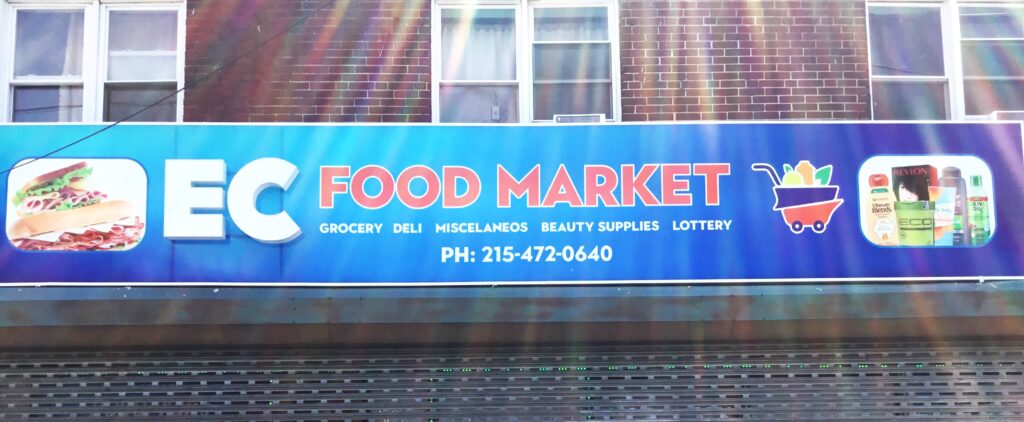
Introduction
In West Philadelphia’s Haddington neighborhood — a historically underserved, majority African American community — access to affordable, nutritious food has long been a challenge. EC Food Market, a BIWOC-owned corner store, has emerged as a vital solution, thanks to strategic investments made possible through Healthy Food Financing Initiatives (HFFIs) and the support of The Food Trust.
The Haddington neighborhood faces significant barriers: it is classified as both a low-income and low-access area, with a median household income of $46,492 compared to Pennsylvania’s $76,081, and with 40% of families receiving SNAP benefits. Chronic health conditions are also prevalent, with nearly one in five adults diagnosed with diabetes and over 40% experiencing high blood pressure. Prior to the store’s transformation, residents had few options: the nearest full-service supermarket was nearly a mile away, and the existing corner stores offered little to no fresh produce.
Community Context
Recognizing the critical need for healthy food access, EC Food Market applied for and received funding through the Pennsylvania Fresh Food Financing Initiative (PA FFFI). The funding enabled the store to undergo major renovations, including repairing the floors, upgrading signage, and purchasing new equipment such as a freezer for healthy proteins like chicken, fish, and shrimp. The store also invested in shelving and baskets to better display fresh produce. These physical upgrades not only improved the shopping experience but also helped reshape the store’s identity from a miscellaneous convenience shop into a clean, welcoming mini-market. According to the owner, something as simple as replacing the old floor surprised and delighted customers, reinforcing how important the shopping environment is to the overall community experience.
Transformation Through Healthy Food Financing
Beyond financial support, The Food Trust provided technical assistance, connecting the store to local produce distributors and offering programming support through the Heart Smarts program. The Heart Smarts initiative brought weekly nutrition education, free health screenings, and healthy food incentive programs like Heart Bucks directly into the store. The store even installed a free Higi machine, allowing customers to monitor their blood pressure easily and regularly.
Since implementing these upgrades, EC Food Market has experienced tangible benefits. There has been a notable increase in the variety and availability of healthy foods such as fruits, vegetables, and lean proteins. Customer satisfaction has grown, and emotional connections to the store have strengthened. Importantly, the store has seen increased sales, particularly from SNAP/EBT purchases of healthier items, and has created new employment opportunities, now sustaining three full-time employees. EC Food Market’s transformation has deeply resonated with local residents, many of whom express appreciation for the changes and the store’s new focus on health and community well-being.
Future Outlook
Looking ahead, EC Food Market is determined to build on its success. Plans are underway to install a hot kitchen, upgrade the store’s front door, and invest in an online ordering system that would integrate with platforms like Uber Eats and DoorDash. While these developments will require additional capital, they reflect the store’s commitment to meeting the evolving needs of its community. Continued investment through programs like HFFIs remains crucial to sustaining and expanding these gains.
Ultimately, EC Food Market’s story illustrates the profound impact that targeted investments, community partnerships, and supportive initiatives like those led by The Food Trust can have in transforming neighborhoods. As cities across the country grapple with food insecurity and health disparities, EC Food Market stands as a replicable model for how healthy food financing and grassroots leadership can foster stronger, healthier communities.
General Manager: Clara Olivares
County: Philadelphia County
Region: Southeast
Geographical context: Urban
Date Funded: February 2023
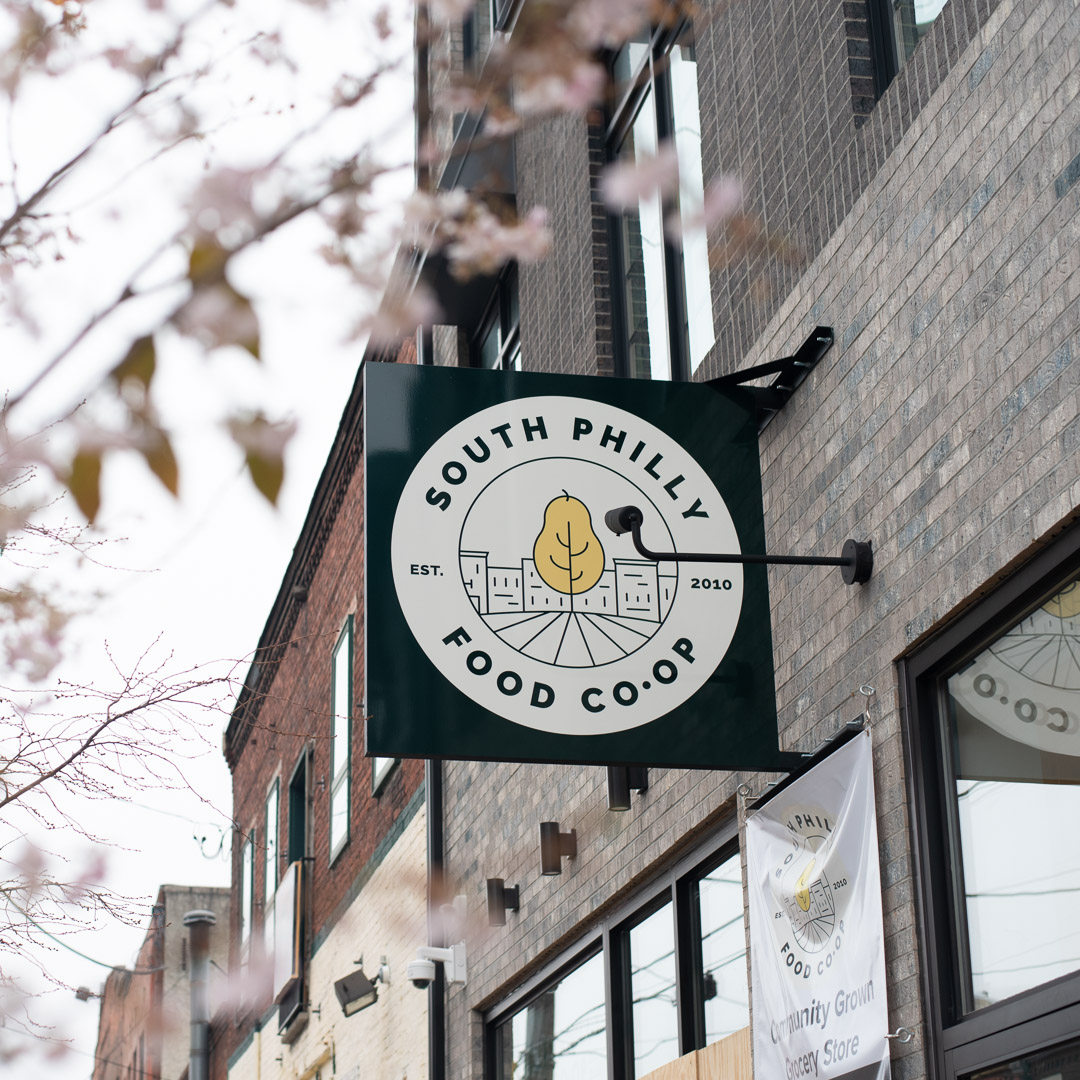
A Historic Food Landscape
South Philadelphia’s food culture is steeped in history and tradition. Since the late 19th century, the South 9th Street Italian Market has played a central role in shaping the area’s culinary identity. Founded by immigrant entrepreneurs like Antonio Palumbo, this vibrant corridor became home to generations of food vendors of fresh produce, meats, and baked goods in a uniquely communal setting. The market’s roots in local agriculture and neighborhood commerce laid the groundwork for a thriving, people-centered food ecosystem.
A Modern Chapter: The South Philly Food Co-op
Opened in December 2020, the South Philly Food Co-op carries this legacy into a new era of food access—grounded in sustainability, community well-being, and local ownership. As the only cooperatively owned grocery store in the neighborhood, it is governed by over 1,900 local member-owners who guide everything from store operations to community engagement.
The 3,000-square-foot store was made possible through critical financial support from the Pennsylvania Fresh Food Financing Initiative (PA FFFI), administered by The Food Trust. In February 2020, PA FFFI funding supported the final construction, buildout, and equipment purchases needed to bring the long-envisioned project to life. This investment enabled the hiring of 17 new employees, establishing the Co-op as both a neighborhood employer and a point of healthy food access.
Situated in a Census Tract with a Median Family Income (MFI) of just 33.01% of the Metro Area, the Co-op serves a low-income population in a formerly redlined area (HOLC Grade D). It is adjacent to several USDA-designated Low Income and Low Food Access tracts, where more than 500 residents—or over 33% of the population—live farther than 0.5 miles from a large grocery store. With a projected trade area population of 39,179 and a total surrounding population of 39,435, the Co-op plays a crucial role in expanding access to fresh, nutritious food for thousands of Philadelphians.
The Power of Healthy Food Financing
The South Philly Food Co-op exemplifies how targeted investment through Healthy Food Financing Initiatives (HFFIs) can catalyze sustainable, community-driven solutions to food insecurity. Programs like the PA FFFI—administered by The Food Trust in partnership with the Pennsylvania Department of Community and Economic Development and regional community development financial institutions—provide vital capital to food retailers seeking to open or expand in underserved areas.
This catalytic funding not only helps businesses overcome initial financial barriers but also strengthens their ability to attract additional grants, loans, and private investment, accelerating project timelines and increasing long-term sustainability. Through one-time grants and loans, PA FFFI empowers for-profit, nonprofit, and cooperative food businesses to establish grocery outlets that offer nourishing, affordable food while also stimulating local economies.
In addition to state-led programs like PA FFFI, national initiatives such as America’s Healthy Food Financing Initiative—administered by Reinvestment Fund’s FARE Fund—expand the impact of healthy food financing across the country. These programs support a diverse range of healthy food retailers, including independent grocery stores, cooperatives, farmers markets, mobile markets, and food hubs, ensuring that communities of all sizes—urban, suburban, and rural—have access to affordable, nutritious foods. Together, these efforts demonstrate the vital role that flexible, community-driven financing plays in strengthening local food systems nationwide.
Advancing Healthy Food Access
As part of its mission, the Co-op works to make nutritious food attainable for all. It accepts SNAP and, through its partnership with The Food Trust, participates in Food Bucks and Food Bucks Rx —nutrition incentive programs that help reduce financial barriers to healthy eating. Food Bucks are earned by SNAP users at the point of purchase and can be redeemed for free fruits and vegetables at participating farmers markets and stores across Philadelphia, Camden, Reading, and other regions of Pennsylvania. FBRx, or produce prescriptions, are distributed to patients by healthcare providers, further connecting food access to health outcomes and supporting low-income households in managing diet-related conditions.
The Co-op’s commitment to affordability also extends to its supply chain. Collaborating with National Co+op Grocers allows the store to offer competitively priced, high-quality goods without compromising on ethical sourcing. Additionally, community-driven efforts like the “Round-Up” program and food bag donations help address food insecurity on a neighbor-to-neighbor level.
South Philly Food Co-op’s Role in the Broader Cooperative Movement
Community ownership and resilient neighborhoods are central to the broader value of cooperatives, as highlighted by the Philadelphia Area Cooperative Alliance (PACA), whose team supported the Co-op during its crucial startup phase. PACA emphasized that food cooperatives like South Philly Food Co-op help keep wealth local, foster better working conditions, and create spaces where residents can advocate for their needs—including food access programs like SNAP, WIC, and sliding-scale membership options that prioritize inclusivity without imposing financial hurdles.
More broadly, South Philly Food Co-op is part of a growing ecosystem of cooperatives across Philadelphia—a city recognized for one of the largest and most vibrant cooperative networks in the country. In an industry often dominated by large corporate chains where profits leave the community, co-ops provide a sustainable alternative. They support local farmers, offer higher-quality produce that meets diverse dietary needs, and anchor economic development in the hands of local residents.
As PACA noted, co-ops offer communities an avenue to build local wealth, promote civic engagement, and foster economic systems rooted in equity rather than extraction. By connecting healthy food access to democratic ownership, South Philly Food Co-op embodies the broader cooperative movement’s vision: institutions that not only serve communities, but are owned and shaped by them.
Equity Through Ownership
Key to its inclusive growth has been the Community Equity Fund, which lowers barriers to ownership and ensures that residents across income levels can participate in the Co-op’s governance and benefits. This democratized approach to food retail promotes both economic empowerment and social cohesion.
The store itself is intentionally located for accessibility, situated near public transportation and key community institutions like South Philadelphia High School. This strategic placement, combined with welcoming policies for both members and non-members, underscores the Co-op’s belief that everyone deserves a seat at the table.
Realizing a Vision for the Community
The South Philly Food Co-op goes beyond the operations of a grocery store. It has and will continue to cultivate a vibrant, values-driven community hub. Staff members are compensated fairly and empowered to grow, while the organization actively partners with other local groups to promote social and economic justice. Through its food, programming, and everyday business, the Co-op aims to support a more holistic food system: one that honors cultural heritage, uplifts small producers, and prioritizes sustainability. As a participant in the PA Fresh Food Financing Initiative, the Co-op exemplifies what can be achieved when grassroots vision meets targeted investment.
General Manager: Lori Burge
County: Philadelphia County
Region: Southeast
Geographical context: Urban
Date Funded: February 2020
Uncle Mussa Grocery is a Liberian immigrant-owned grocery store in Upper Darby, PA that specializes in traditional African produce, meat and other grocery items. At the time of funding, the store had been in operation for 6 years serving local residents that immigrated from areas such as Nigeria, Liberia, Sierra Leone, West Africa and the Caribbean region.
Funding from the Pennsylvania Fresh Food Financing Initiative supported the store’s expansion into the neighboring property and helped it transform it into a culturally appropriate grocery store and community hub. The expansion increased access to healthy and affordable foods to the surrounding low-income and diverse area and expanded the capacity for Uncle Mussa Grocery to serve its community.
Community: Upper Darby
County: Delaware County
Region: Southeast
Geographical context: Urban
Date Funded: August 2023
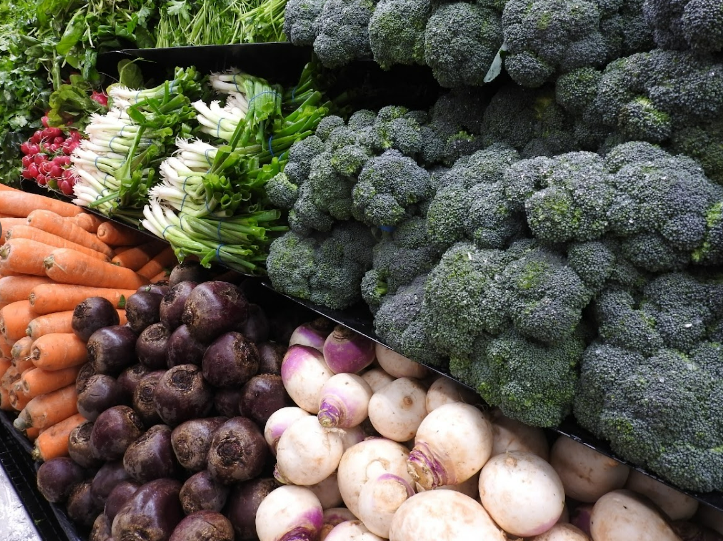
Compare and Save, an immigrant-owned supermarket with two locations in North Philadelphia, sells affordable grocery items, fresh products and Latino products to their community. The location on East Wyoming Ave is a staple in the neighborhood as there is not another option for the same products for 1.3 miles. The community surrounding the I Street location is similarly underserved; there is not another grocery store that sells Latino products for 0.7 miles. Before Compare and Save Supermarket opened on I Street in 2019, there were no options for groceries in this community.
Funding from the Pennsylvania Fresh Food Financing Initiative has supported the purchase of new produce refrigerators for both locations. Replacing the stores’ faulty equipment will allow them to continue providing fresh and affordable foods for their community.
Community: North Philadelphia
County: Philadelphia County
Region: Southeast
Geographical context: Urban
Date Funded: August 2023
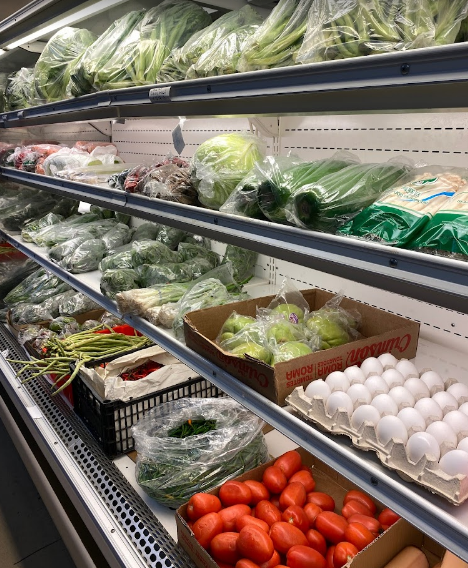
Blessing Food Store is a refugee-owned grocery store in Lancaster PA that specializes in Burmese produce and grocery items, as well as provides ethnic foods to the nearby Latino community. The store has been open since 2019 and has made a name for itself in the immigrant and refugee communities throughout the Lancaster area by providing quality grocery items at affordable prices.
Funding from the Pennsylvania Fresh Food Financing Initiative supported the purchasing of new equipment for Blessing Food Store’s produce and frozen foods sections and for a commercial vehicle. These purchases helped the store reduce product spoilage and allow it to continue to serve its diverse community healthy, affordable and culturally relevant foods.
Community: Lancaster, PA
County: Lancaster County
Region: Central
Geographical context: Urban
Date Funded: August 2023
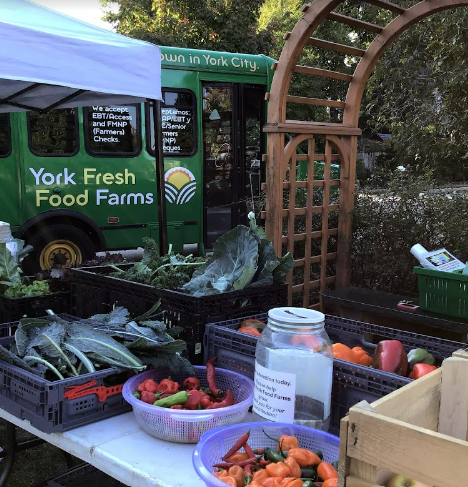
York Fresh Food Farms is a nonprofit 4-acre urban farm with a mobile market located in York, PA. Founded in 2015, the mission of York Fresh Food Farms has always been to serve healthy and affordable foods to the low-income and food insecure residents of York. The mobile market sells fresh produce, operates for 25 weeks out of the year and has 14 stops at locations like WIC offices and senior centers.
Funding from PA FFFI helped support infrastructure, technology and equipment improvements on the farm, which enabled York Fresh Food Farms to process their produce more efficiently and better serve their community.
Community: York, PA
County: York County
Region: Southeast
Geographical context: Urban
Date Funded: August 2023
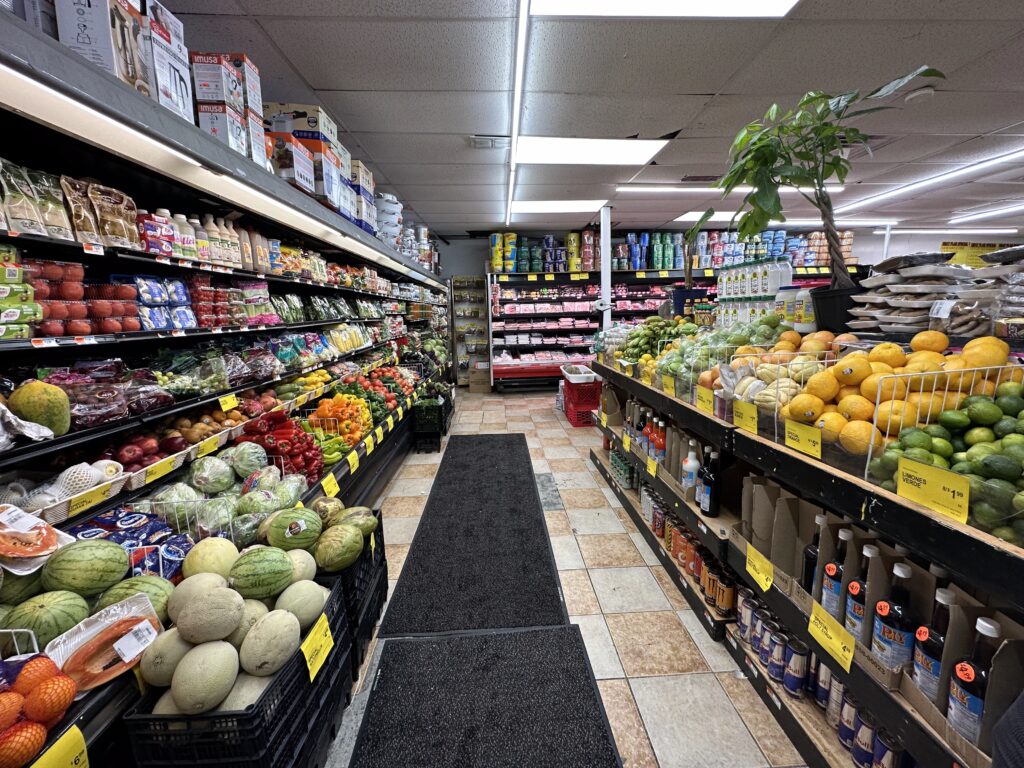
Chandi Supermarket is a Latino-owned supermarket in Bethlehem, PA, that sells culturally appropriate grocery items and fresh produce to the surrounding low-income and Hispanic community. The store has been open since 2019 and is a staple in its community as it is the only grocery store for 2.6 miles and the only ethnic foods store for 10 miles. Chandi Supermarket regularly donates food to the Hispanic Center of Lehigh Valley, the only culturally appropriate business to do so. The store also supports its community by providing nearly 30 jobs to local residents.
Chandi Supermarket’s mission is to provide their community with fresh and affordable foods. Funding from the Pennsylvania Fresh Food Financing Initiative will support a 3,000 square foot expansion of Chandi Supermarket’s meat and produce departments, which will increase access to healthy, affordable, and necessary ethnic foods for surrounding low-income, disabled, and food insecure residents.
Community: Bethlehem, PA
County: Northampton County
Region: East
Geographical context: Urban
Date Funded: August 2023
“Feeding our community is the most honorable thing a grocer can strive to do. The PA FFFI is the vessel that helps create that opportunity.” – Doug Sprankle, owner of Sprankle’s Neighborhood Market in Saxonburg, PA.
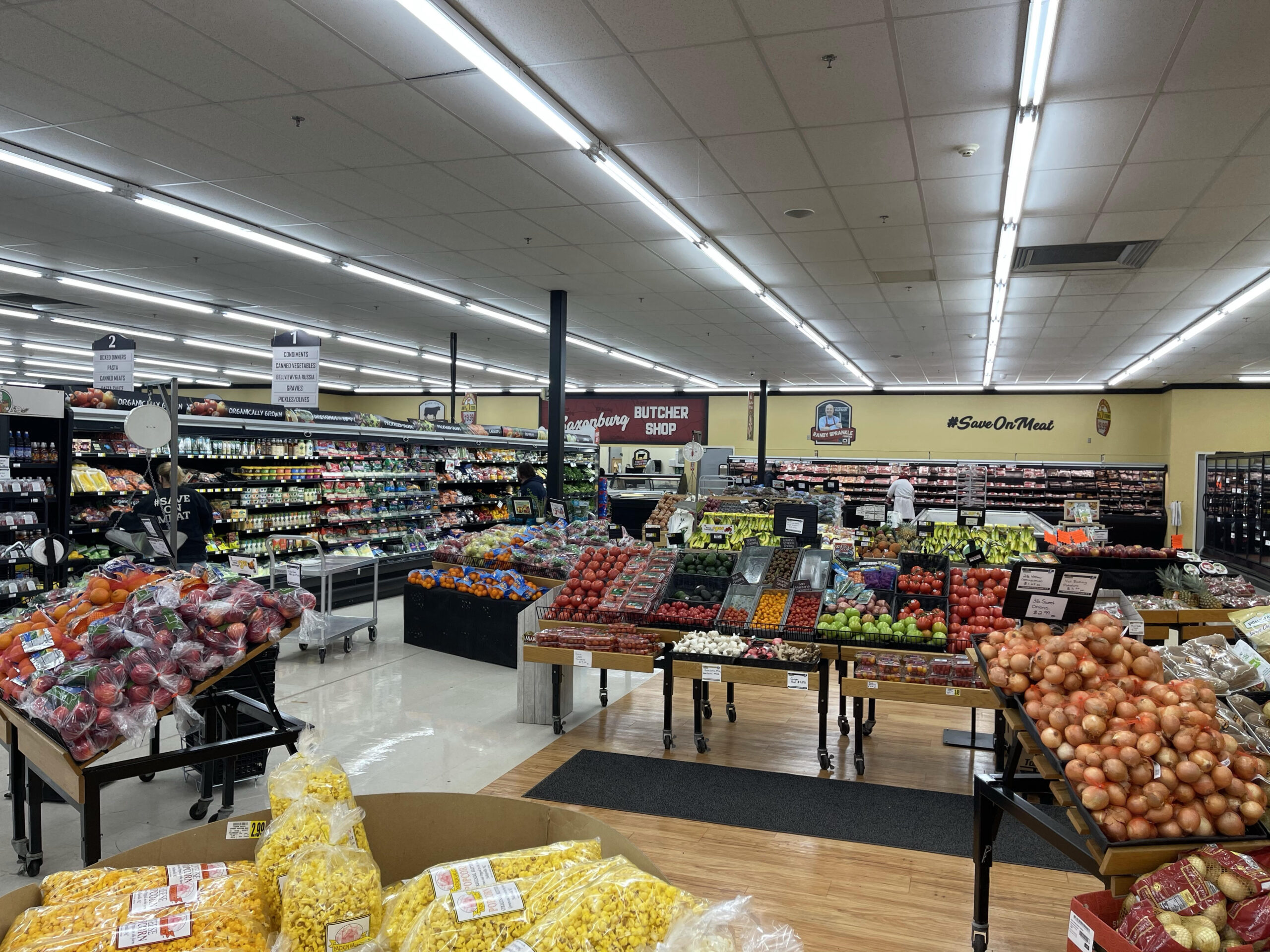
When Saxonburg, a small town in Butler County, PA, lost its only grocery store in 2018, residents were left with few fresh food options. Doug Sprankle, of Sprankle’s Neighborhood Market, wanted to fill this fresh food gap. With support of the PA FFFI, the Sprankles family purchased the vacant building and re-opened the store under their management. Sprankle’s Neighborhood Market in Saxonburg is now the family’s third family-run supermarket.
Since opening in 2020, the store has created over 60 jobs for the community, and has become a food access point for Saxonburg.
Owner: Sprankle Family (Doug Sprankle)
Community: Saxonburg, PA
County: Butler County
Region: West
Geographical context: Rural
Date Funded: March 2020
West Phillie Produce is a community-driven produce market located in West Philadelphia, PA. The store sells fresh produce and participates in various community programs including workforce development programs, entrepreneurship training, and health and nutrition education. West Phillie Produce received a grant through the first iteration of the Pennsylvania Fresh Food Financing Initiative in 2009, before the store officially opened.
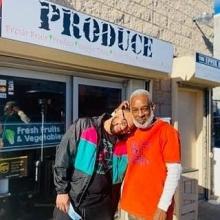
In 2020, West Phillie Produce re-applied to the program and received a $20,000 grant to purchase equipment including a walk-in refrigerator, a refrigerator to display healthy prepared foods, and additional tables, chairs and other equipment to keep customers safe amid the COVID-19 pandemic. For the past decade, West Phillie Produce has provided its community with healthy, fresh food and The Food Trust and the PA FFFI are proud to support this business.
Owner: Arnett Woodall
Community: West Philadelphia, PA
County: Philadelphia County
Region: Southeast
Geographical context: Urban
Date Funded: September 2020
Leopoldo Sanchez, owner of Super Natural Produce, is expanding his business to open a new supermarket in downtown Reading, PA. Super Natural Produce III will be a full service supermarket offering fresh, affordable, healthy food and culturally-relevant Hispanic food options.
Financing from the Pennsylvania Fresh Food Financing Initiative and its partner, Community First Fund, is being used to renovate a vacant building into a 17,000-sq. ft. extensive supermarket. Sanchez plans to transform the first floor of the building into a full service grocery store, and the second floor into a manufacturing and warehouse space. The second floor space will support both the supermarket and Sanchez’s distribution business, which will provide Hispanic food products to local corner stores and food service operators throughout Reading.
Construction for Super Natural Produce III will begin in spring 2021. Once open, the store will bring high quality, affordable food to the Reading community.
Owner: Leopoldo Sanchez
Community: Reading, PA
County: Berks County
Region: Central
Geographical context: Urban
Date Funded: November 2019
Northern Butler County Farmers Market is a community-run farmers market located in Butler County, PA. With a focus on local products, the farmers market will offer a variety of items including fresh produce, honey, dairy, and local artisan products.
The project, led by Butler County Community Development Corporation in partnership with Zimmerman Family Farms and Five Element Farms, will bring fresh, healthy food to a community where residents currently need to drive 30 minutes to access the closest full-service grocery store.
A $20,000 grant from the PA FFFI will be used to kick-start the market, which plans to open in spring 2021.
Community: Petrolia
County: Butler County
Region: West
Geographical context: Rural
Date Funded: September 2020
“The PAFFFI grant is allowing Mill Creek Farm to expand its educational outreach outside the farm boundaries by assisting people grow food in their own backyards and front yards”
– Martha Griffin, Farm Administrator
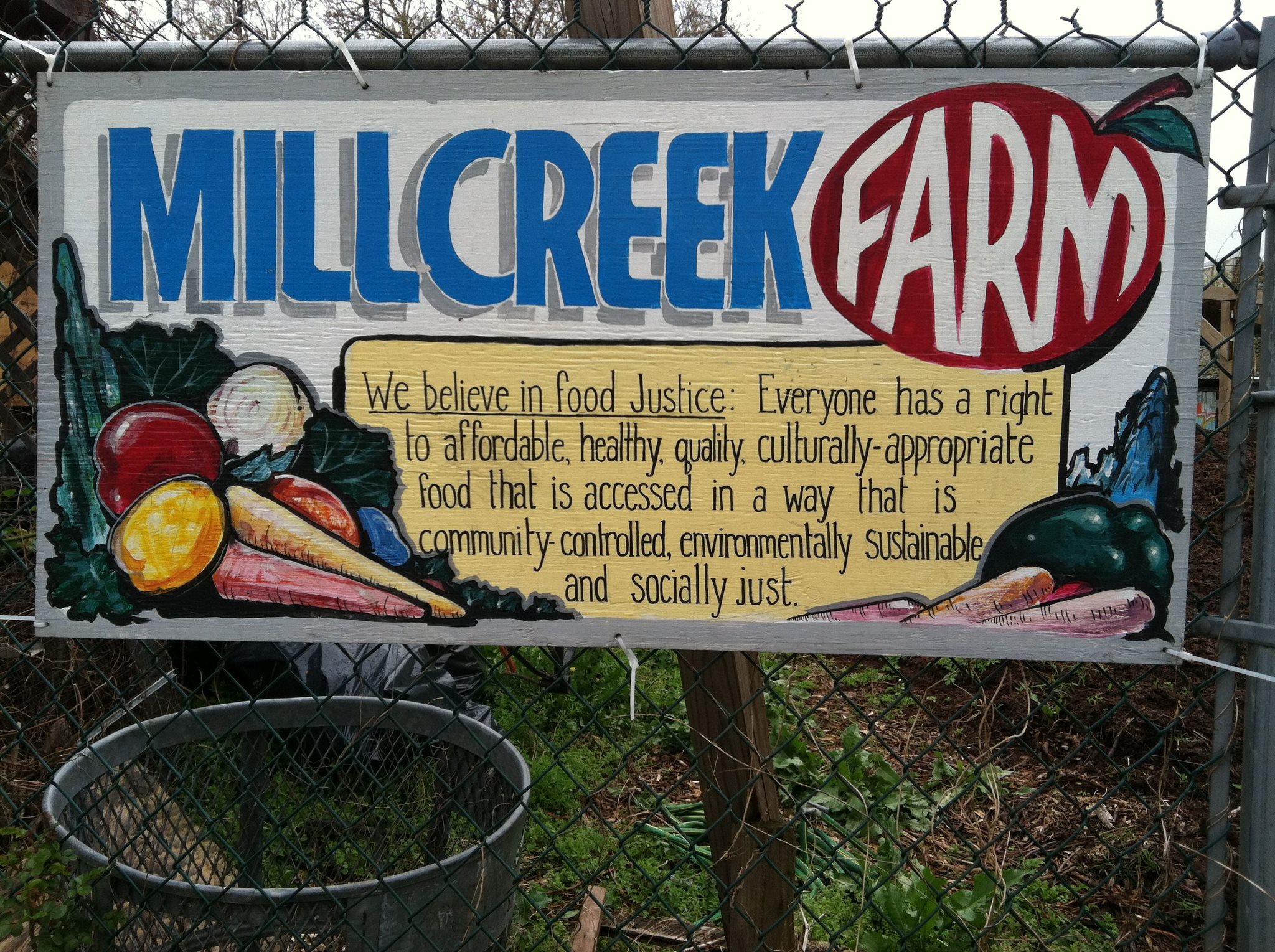
Founded in 2005, Mill Creek Farm is an educational farm led by people of color. Located in the Millcreek neighborhood of West Philadelphia, the farm grows and sells fresh produce to the local community at affordable prices. Mill Creek Farm offers farm-based learning programs to both youth and adults in the community, in an effort to reconnect people with food and the environment.
Funding from the Pennsylvania Fresh Food Financing Initiative supported the hiring of local employees, furthering educational programs, purchasing supplies for the farm and developing marketing materials.
Mill Creek Farm pairs healthy, locally grown food with environmental activism, by offering their community fresh, affordable produce while prioritizing social justice and sustainability.
Farm Administrator: Martha Griffin
County: Philadelphia County
Region: Southeast
Geographical context: Urban
Date Funded: October 2020
Hung Vuong Supermarket prioritizes serving fresh and high-quality produce to their community, with a mission statement of “Fresh Quality for a Better Community!”
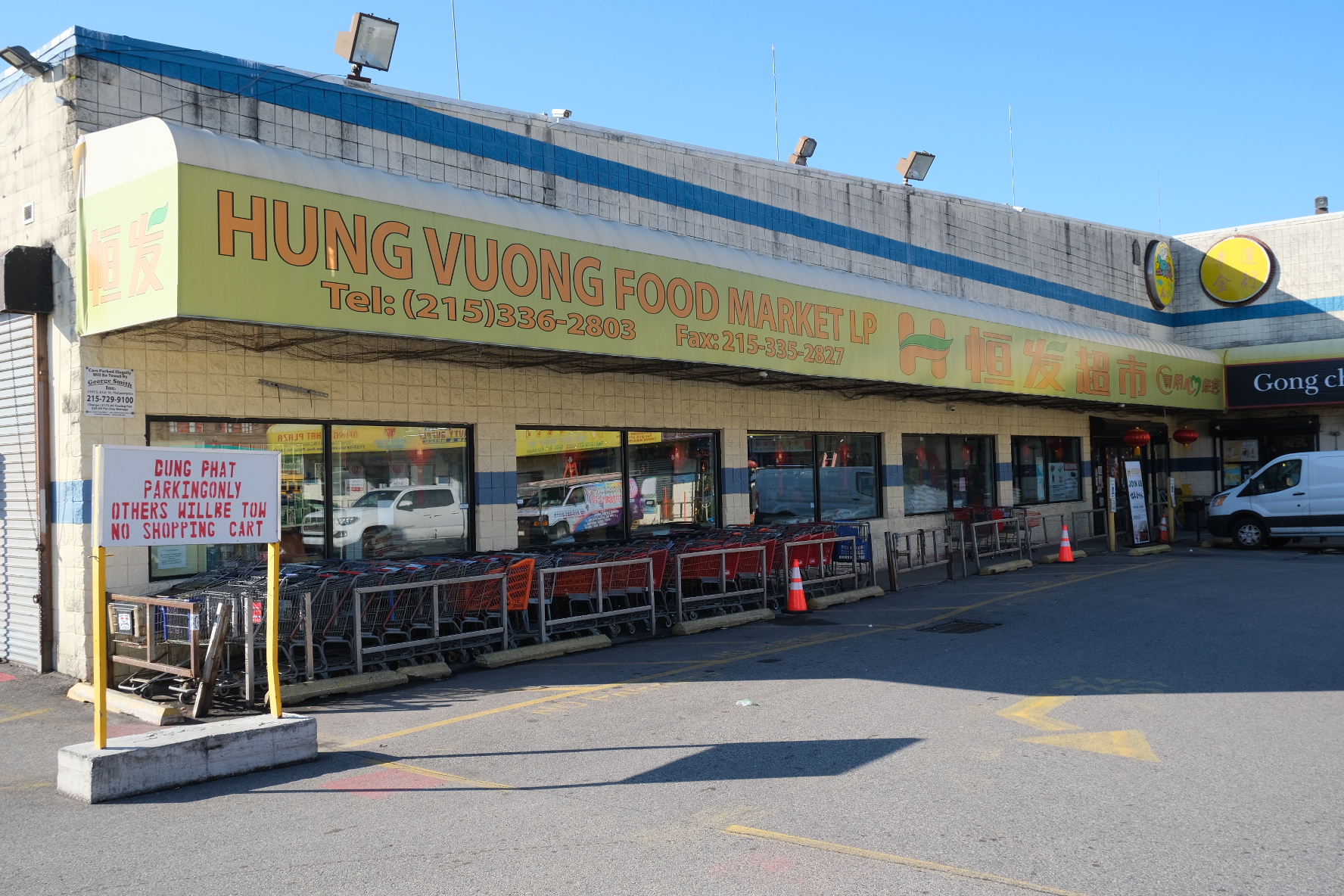
Hung Vuong Supermarket is an immigrant-owned Philadelphia-area grocery store chain specializing in Asian food, fresh produce, meat, and seafood. Originally a single store, the supermarket has since expanded into 3 locations: South Philadelphia, Northeast Philadelphia, and Cherry Hill, NJ. Hung Vuong employs hundreds of workers and provides skills and jobs training to many employees.
Funding from the Pennsylvania Fresh Food Financing Initiative supported the expansion of Hung Vuong’s delivery capacity, which is now offered anywhere within an hour drive of the store. This expansion has increased access to healthy, affordable, and culturally relevant foods to low-income, senior, and Asian communities around Philadelphia, and has given Hung Vuong Supermarket the competitive advantage they needed during the COVID-19 pandemic against larger, corporate supermarkets.
Owner: Defu Liu
County: Philadelphia County
Region: Southeast
Geographical context: Urban
Date Funded: October 2021
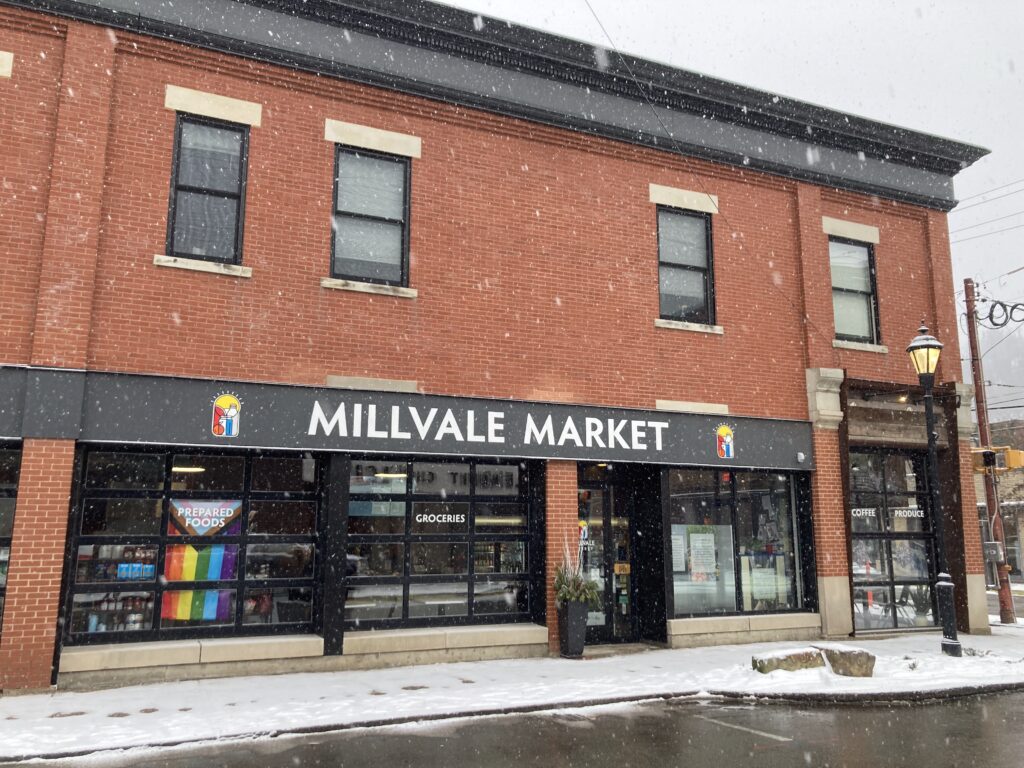
Millvale Market is a new corner grocery store located outside of Pittsburgh. Specializing in locally sourced fresh food and grocery staples, the business is the borough of Millvale’s first grocery store in over 20 years. Affordability is a key concern for owners Dereck Dumont and Jen Saffron, who were galvanized by the food insecurity exposed by the COVID pandemic to offer their moderate-income community a source of healthy food at a walkable distance. Beyond accepting SNAP, Millvale Market has also partnered with The Food Trust’s team in Pittsburgh to provide an additional nutrition incentive, Food Bucks, at its site.
Funding from the Pennsylvania Fresh Food Financing Initiative allowed the business to purchase and install 5 food merchandisers, including one each for produce, dairy, and prepared foods.
Owner: Derek Dumont and Jen Saffron
Community: Millvale, PA
County: Allegheny County
Region: West
Geographical context: Urban
Date Funded: January 2022
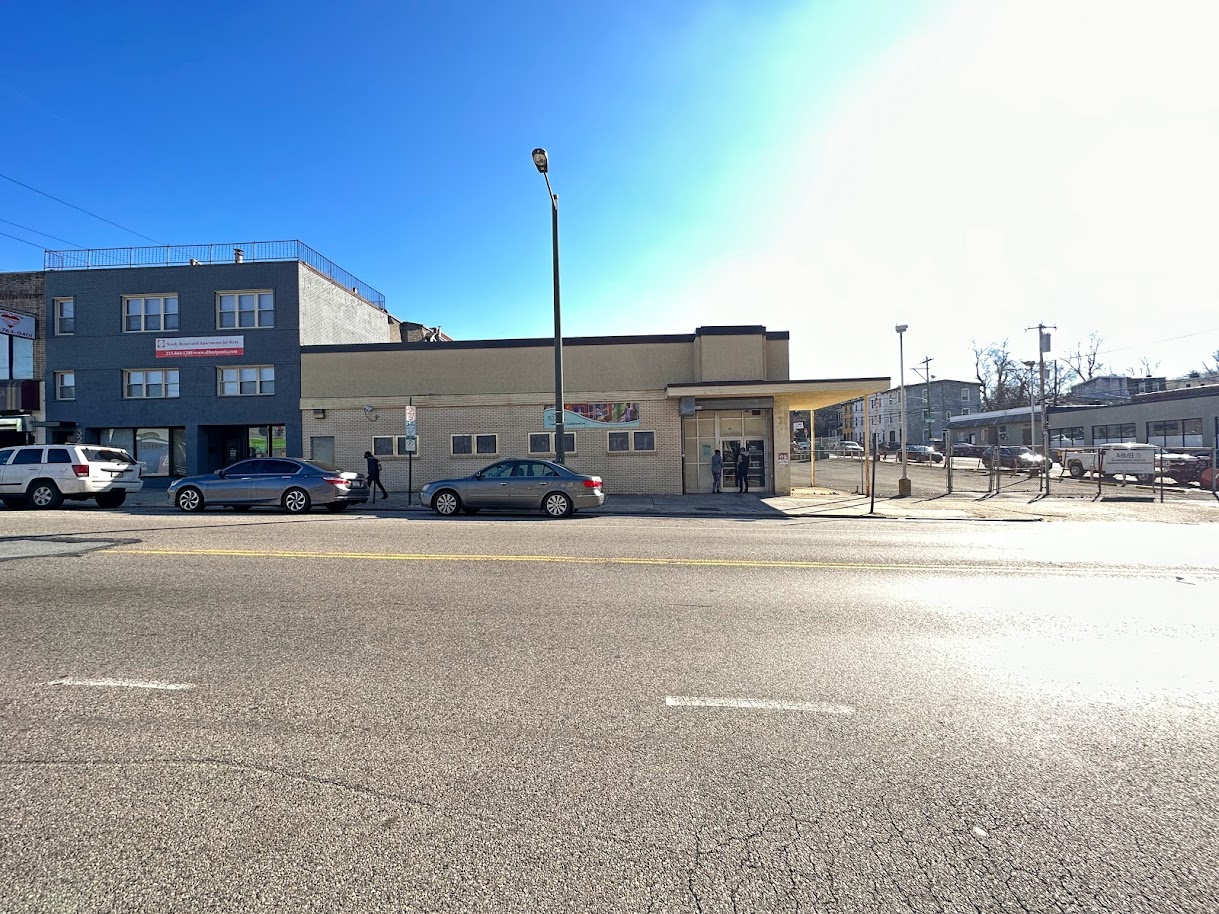
Weaver’s Way Co-op is a member-owned grocery store specializing in healthy, local foods that sustain both people and the environment. Thanks in part to pre-development funds for community outreach from the Pennsylvania Fresh Food Financing Initiative, a new location was opened in Germantown, Philadelphia in May 2024. Other funding for the co-op included a loan from Reinvestment Fund, a grant from the Philadelphia Department of Commerce, a grant from USDA HFFI, and community fundraising. The presence of the store filled an identified gap in the neighborhood for fresh, healthy food retail and created approximately 40 new jobs in the community. The Germantown store is accessible via public transit and accepts SNAP benefits. Weaver’s Way will further encourage affordability through its Food For All program, whereby members receiving SNAP can save an additional 15% discount on almost all items in the store.
Weaver’s Way Co-op’s commitment to identifying the needs and goals of its community made the project a strong fit for the PA FFFI.
Owner: Member owned
Community: Germantown
County: Philadelphia County
Region: West
Geographical context: Urban
Date Funded: May 2022

King’s Supermarket is a new, immigrant-owned, full service supermarket located in the Glenside neighborhood of Reading. The store is set to open February 2023, taking over a vacant building where a grocery store, Super Saver Market, had previously operated. The space has been vacant for over 1 year, which left residents in this community without convenient access to fresh food. The store will provide fresh and culturally relevant produce and other grocery items to the predominantly Latino community, and it will be the only large grocery store within a two mile radius.
King’s Supermarket received a grant from the PA FFFI in the amount of $100,000 to purchase equipment for the new store. The store will employ 20 people from the local community, and, according to the owner, “Everyone is really excited. The people around here have never had something like this. This is completely something that they deserve.”
Owner: Misael Marmolejos
Community: Reading
County: Berks County
Region: Southcentral
Geographical context: Urban
Date Funded: August 2022